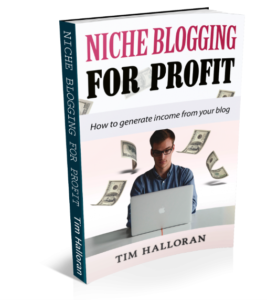How much can SEO increase traffic to a website? With a lot of work and invested time, you can build content on your website which attracts an audience through SEO – search engine optimisation. However, if you don’t have the time or resources to invest in content creation, paid marketing is the way to go. Paid marketing can get you to the top of Google almost immediately, if you’re willing to spend. Getting a top placing for your content organically is much more difficult. If you’re in a competitive industry/niche, it’s going be be even harder still.

But that shouldn’t stop you from creating a longer term organic strategy to improve your SEO. SEO can, over time dramatically improve your volume of traffic. Plus if you achieve it, it’s free traffic. The real question is then how much can SEO increase traffic; and is it worth your time?
How Much Can SEO Increase Traffic: The Right Traffic
Since we’re talking about spending time on SEO, it’s important to ask why we would do this. Presumably it’s to increase your ROI – return on investment, and make more sales: acquire more customers? This needs to be addressed because more traffic doesn’t necessarily equate to more customers. You can have a tonne of traffic for free, but if that traffic doesn’t convert into sales, it’s not been time well spent (or money well spent).

With this in mind, it’s useful to define your target audience or customer avatar. Your target audience is the small section of the whole who are interested in what you have to sell, or the service you have to offer. If you randomly create content on your website without this in mind, you can spent a lot of time attracting people who don’t actually want what you’re selling.
The content you create will attract a certain audience. Define that audience before creating your content and there’s a much higher chance of converting website visitors to paying customers. Don’t do this and you can create a lot of work for nothing! See customer avatar worksheet and how to know your target market.
How Much Can SEO Increase Traffic: A Lot!
“Search is the single largest online traffic source, driving well over 50% of most industries’ web traffic.
The average top blog gets 66.47% of its traffic from search, of which 99.77% is organic and only 0.23% is paid.”
Source: https://growthbadger.com/traffic-study/
Top bloggers get 99.77% of their traffic organically! This means that it’s obviously well worth having a long term content creation strategy. Even if you only manage a much smaller percentage of traffic from organic as the top bloggers do, it can still make a massive difference.

However, top bloggers work very hard at creating content over a long period of time. So whether this is worth the effort for you will depend on your other marketing strategies. If you’re already profitable with paid marketing, it’s easy to scale up by increasing your daily budget.
Optimising Your Website For SEO
There’s a few ways you can optimise your existing content for SEO:
- Get an SEO plugin and optimise existing content – see best free blog plugins for WordPress
- Create more content – blogging
- Build a back link strategy – or pay someone to do it for you
- Use social media for content exposure
- Build a niche website which targets specific keywords/topics

Your competition, your domain age, back links and various other criteria are the main factors which will determine your stand alone website ranking. In a competitive niche, you’ll need to do a lot more work in order to improve your ranking.
To increase your ability to rank your site highly for appropriate keywords you can build a lot of content on a blog. This shows Google that you are an authority in your niche. Over time, as more people link to your content, it proves your worthiness for a highly ranking listing on the SERPS – search engine results pages. This can take some time though, but if you’re prepared to work for it, your efforts compound over time as your content grows.
How Long Will It Take?
SEO takes time and effort to build up. Depending on your SEO strategy and your relative competition it can take weeks, months or even years to start seeing a large increase in organic traffic. But you can also make small significant changes to your website’s SEO in order to see some quick results.
It’s worth using a site such as SEM Rush or The Hoth which can take an inventory of your site and suggest some quick wins. Over the longer term, you can create some high quality content which will attract a suitable audience for your products/service.
If you don’t have the time to create content you can outsource it, but it’s well worth make even some small steps in the direction of SEO improvement. Over the longer term it can make a dramatic effect on your business. Shorter term, it can be difficult to see what effects the work you do on a site has on your organic visibility.
For faster results use paid marketing. The compounding effect of free traffic can, over time, make a significant difference to your bottom line, if you choose a good strategy and stick with it.
Summary
How much can SEO increase traffic and is it worth your time/investment?
SEO can dramatically increase your website traffic, and sales over time. You can even have a few quick and easy wins with SEO. But the degree to which you can use SEO effectively depends on a number of things such as:
- Your niche/topic
- The relative competition on Google (and other search engines)
- Your domain age and authority
- Back links to your site (how many and where are they from)
- Your content building and marketing strategy
One of the best things you can do for your SEO is to create a content marketing plan; building content consistently over time which attracts the right audience for your service/product.
Is it worth your time? Yes – most definitely it is if you wish to generate more traffic, leads and sales. But it does takes time and consistent effort. If you don’t have the time, or a paid marketing is more appropriate to your business, it’s most definitely faster and more scalable using paid marketing than SEO. However, SEO compounds over time and free traffic is worth the effort if you’re prepared to invest the time and/or money it takes to make it worthwhile.